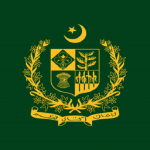TO ensure a belated compliance with the targets of International Monetary Fund (IMF), the government is set to recover additional cost of losses from consumers by imposing new surcharges aimed at financing power sector loans and generate more than Rs.250 billion in annual revenue. As a first step, a meeting of the Economic Coordination Committee (ECC) of the Cabinet has been convened to seek approval for introduction in parliament amendments to the Regulation of Generation, Transmission and Distribution of Electric Power Act, 1997 to address about Rs1.72 trillion worth of circular debt as of end-December 2019. The IMF estimates put the increase in circular debt for FY-2019 at Rs.465bn. The ECC meeting took up five agenda items, including release of funds for payment of outstanding bills to the Sui Southern Gas Company Ltd of the Pakistan Steel Mills, a Rs.5bn loan for the Utility Stores Corporation and a couple of technical supplementary grants. The govt is also in the final stages of raising Rs.200bn worth of loans from banks and shift major part of circular debt to its public debt. Under the recently concluded first review of the IMF programme, Prime Minister’s Adviser on Finance and Revenue Dr Abdul Hafeez Shaikh and State Bank of Pakistan’s Governor Dr Reza Baqir have committed to a revised structural benchmark to allow a fresh power tariff increase to cover the cost of capacity payments within current month.
The two senior functionaries have committed in writing to eliminating delays in tariff adjustments and reintroducing the government’s powers to impose tariff surcharges through amendments to the National Electric Power Regulatory Authority (NEPRA) Act so that the regulator could determine and automatically notify quarterly tariffs under fresh benchmarks. The amendments to NEPRA Act would also be ensuring timely submission of quarterly and annual petitions by the distribution companies, eliminating the gap between regular annual tariff determination and notification by the government and reinstating the authorities’ powers to levy new surcharges over and above the system’s revenue requirements under the Act to ensure that the circular debt reduction targets were met. The amendments to the Act should have reached Parliament by end of December under the commitment. However, the government has given an undertaking that until the process of adjusting quarterly tariffs becomes fully automatic, it will continue to timely notify tariffs on a quarterly basis.
At the moment, entire sectors of the economy are landing up in situations that necessitate public appeals and pose potentially catastrophic threats to the continuity of business. The oil and gas sector, automobiles and textiles are examples — each is saddled with its own peculiar set of problems. Meanwhile, one after another we are seeing fuel and power tariff hikes, in some cases born of genuine necessity but in others clearly designed to compensate for the lack of governance. The hikes in the power tariff recently notified as well as the increase in the gas tariff, clearly point to a critical lack of governance in the system. On Friday last, Prime Minister Imran Khan was in Faisalabad to cut a ribbon for a Special Economic Zone project for the Chinese; he followed this up with a meal at a shelter for the poor and homeless. It is laudable indeed that the Prime Minister continues to place such importance on the plight of the poor and displays a very genuine concern for how the poor are being impacted by his own government’s ongoing economic adjustment under a stringent IMF programme. But stopping by for a meal or cutting a ribbon is nothing substantive — it is of ceremonial significance only. Investors in existing SEZs say they almost regret their decision to invest since the government has violated the commitments it has made to them, whether they pertain to a tax-exempt status for enterprises in SEZs or the provision of infrastructure. And shelters for the poor created in a highly publicized blitz are operating without any commitment by the provincial government of fiscal resources to meet the expenditures, thus casting a shadow over their sustainability.
Today, appeals from industry are increasing, whether against the tax authorities for withheld refunds or non-payment of bills in the power sector, or against the absence of gas or refiners on the point of closing down operations due to the pile-up of the furnace oil inventory. In every area, there is a sense of drift, a derelict state of governance and the consequences of neglect are getting to be more and more visible. The polio virus has made a spectacular return, thanks to the juvenile decision of the PTI leadership to place their social media team leader in charge of the polio programme. Industry is sagging and is reduced to issuing public appeals. Parliament is prostrate and borrowing is on the increase, while the costs of neglect are passed on to the consumers, whether through power or gas tariffs. The government will also build into consumer tariff the late payment charges for recovery. “In connection to Rs.110.6bn of late payment charges accumulated prior to FY-2016, NEPRA will allow this cost in the tariff by end-June 2020 so that it can be incorporated in the tariff from FY-2021”. Moreover, before end-March 2020, the government has promised to revisit all government-provided power sector subsidies with a view to their streamlining and rationalization. On top of that, the Energy Ministry will engage with all stakeholders on possible options to adequately address this aspect of the system and will seek revisions in benchmarks and standards through the Council of Common Interests.
—The writer is former Federal Secretary Election Commission of Pakistan and currently Chairman National Democratic Foundation.
Govt is set to recover additional cost of losses from consumers







